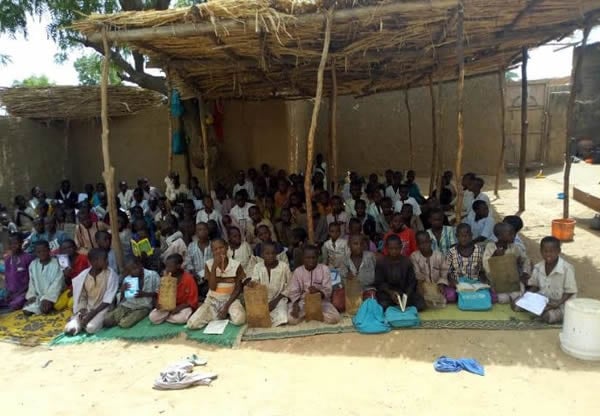BY OMELOGO NNADI
N46 billion worth manhole covers pile away as a three-year-running court case lingers; internal politics stalled alternative measures by the Federal Capital territory Administration (FCTA) department and all the while, gaping hazards litter the federal capital city.
In the third week of May, the story of Adewura Bello, a 26-year-old accountant, drew the ire of Nigerians across social media platforms. Adewura allegedly lost her life on her way home from work. She was reported to have fallen into a manhole in Gowon Estate, one of the pioneer housing estates in Lagos city, from where she ended up in the canal. Her remains were found several days after she had gone missing.
There were projections from some quarters that she was murdered and dumped in the canal, the point being that the Lagos drainage channels are completely blocked, as evidenced by the severe flooding the city witnesses every time it rains. This makes it questionable that her slip at one point in Lagos, had her remains found at the end of the canal at another point, on the channel of drainage supposedly blocked by debris.
Advertisement
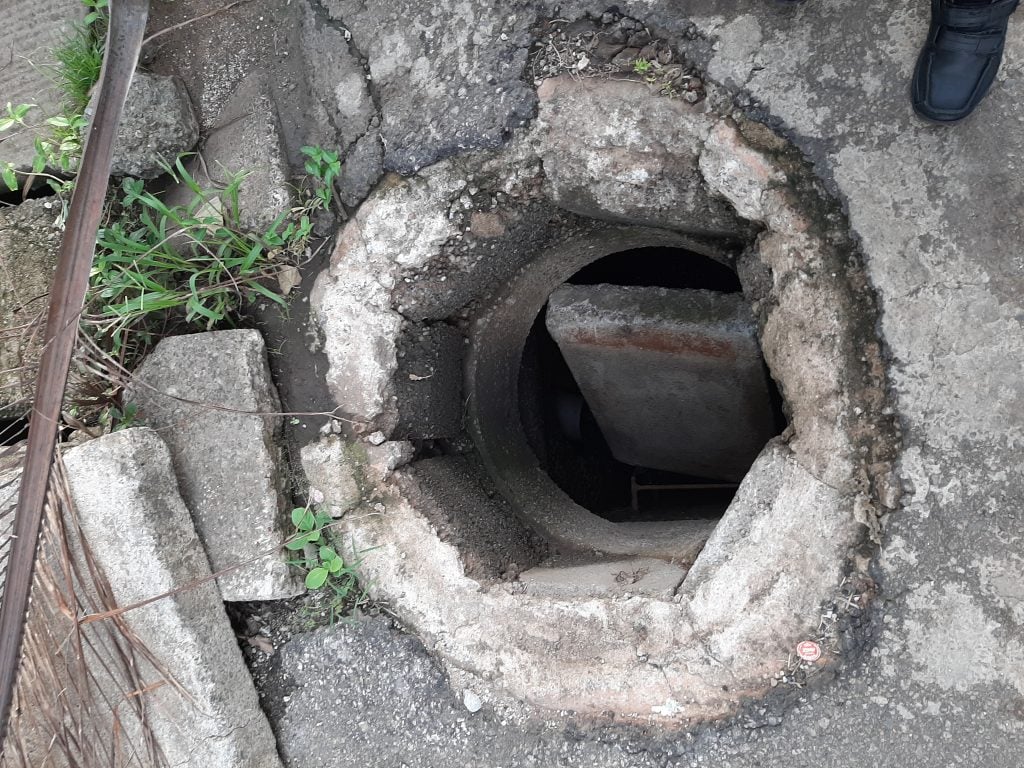
Many blamed the government for failing Adewura in several ways, especially for failing to engage on a manhunt after a report reached them, of a woman fallen into a manhole, until several days after, leaving her no chance of survival. A point that only a few considered, however is; why a manhole was and most probably still, is left uncovered and not barricaded on a walkway or motorway in use, posing such risk as death.
Manholes, also known as utility or sewer holes among other names are openings that lead to confined spaces such as utility vaults or large vessels. They are often used to cover up access points for making connections, inspection, valve adjustments or performing maintenance on underground or buried public utility such as water pipes, sewage drains, electricity and telephone wiring among other things.
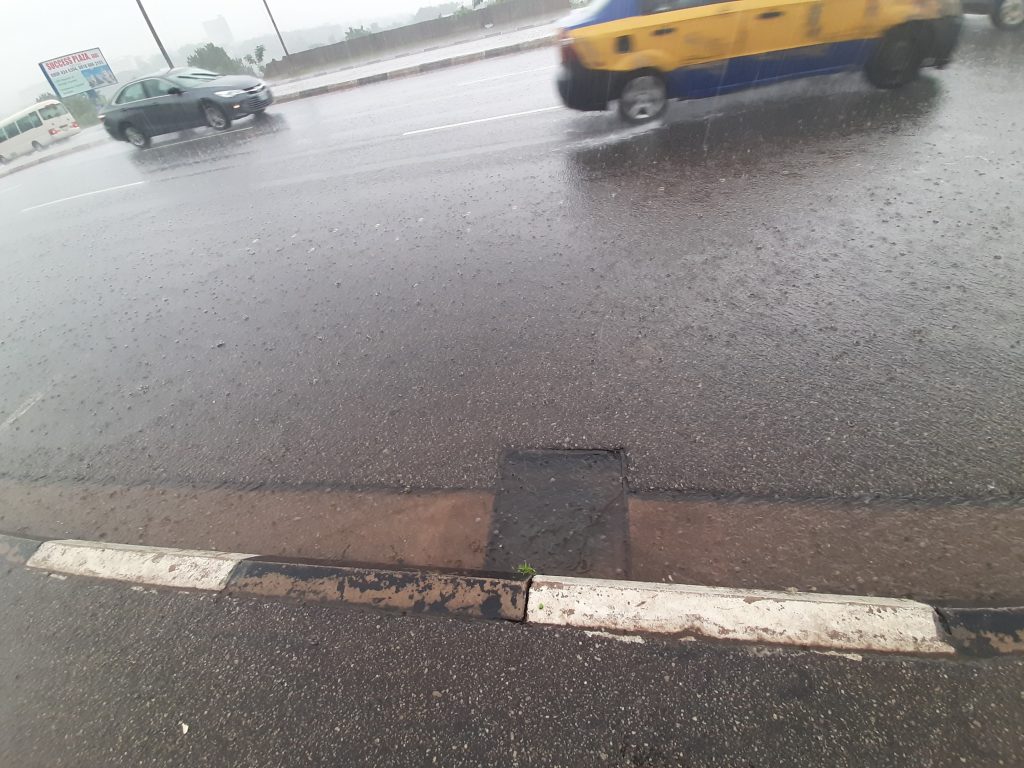
Advertisement
Manholes are generally found in urban areas, on roads, in streets and occasionally under sidewalks. In rural and undeveloped areas, services such as telephone and electricity are usually carried on utility poles or even pylons rather than underground, making manholes a rare sight, unlike in urban centres and areas with better planning.
In Nigeria, the more antique or contemporary the construction, the more likely manholes would be found on the roads. In Lagos, for instance, in the more recent settlements and older settlements like Gowon Estate, Festac and old Ikoyi, manholes are visible every few kilometres. The same may not hold true for the majority of the settlements within Lagos, not even the popular highbrow Victoria Island, Victoria Garden City and even Lekki Phases, the Peninsula excluded.
But in Nigeria’s capital, Abuja, a city built according to a master-plan, manholes are a norm in the major settlements, residential and business areas, including some of the key satellite towns surrounding the city, such as Gwarinpa. With its remarkable litter of manholes on streets and highways, there is clear indication of strict adherence to planning and construction specifications, and adequate provision for underground utility inspection and maintenance and most importantly, drainage.
Advertisement
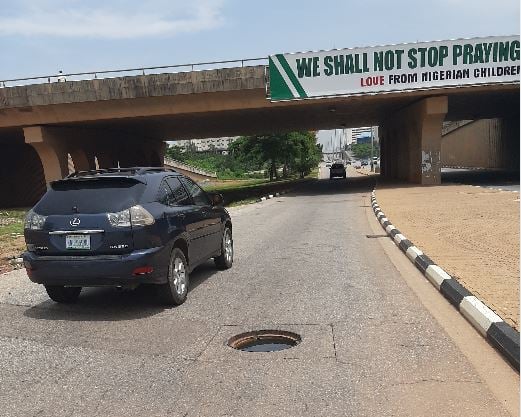
But it is also alarmingly true, that many of these utility holes presently lie uncovered, posing daily risks as are best left imagined. The least danger a road user faces is a ripped off front or back tyre at an attempt to forcefully drive out of a plunge into an uncovered utility hole.
In the Wuse-II axis, a high brow, business and residential district of Abuja, a woman reportedly fell, calf–deep, into an open utility hole, breaking one of her legs. She was due to travel out of the country on the night of her fall and was severely wounded, rendered unfit for a lone trip. A pregnant woman was once reported to have fallen into an uncovered utility hole, several of which gap at unsuspecting pedestrians in dimly-lit streets and walkways.
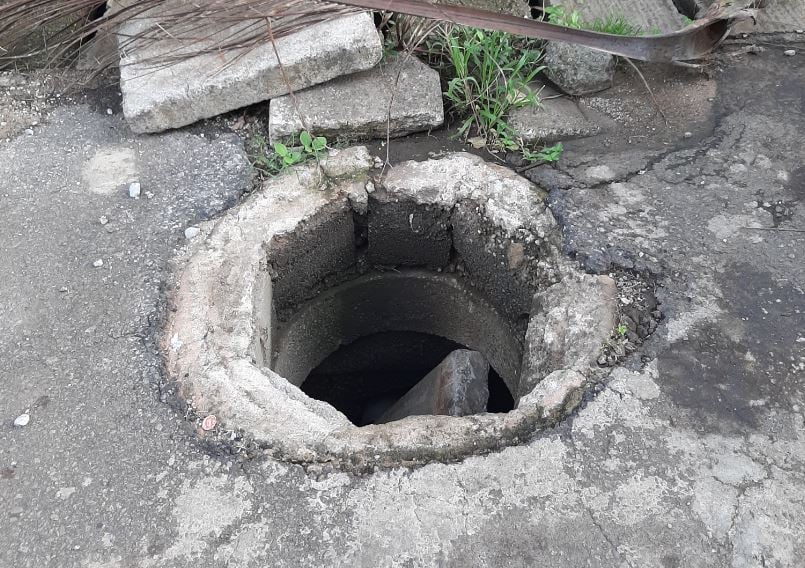
Along the pedestrian pathway leading out of Lungi Barracks, one of the popular military barracks along the Asokoro-Katampe-Kubwa-expressway, a rectangular manhole, big enough to fit three full grown men standing side by side, lies gaping. The manhole, whose huge concrete cover is seen lying just a few meters away, is filled with water, debris and some underground telecommunication wires. The sheer size of the hole and its location is at best, a death trap for visitors and persons new to that environment at night, and there are several such hazardous holes around the capital city which Omoniyi Olaloye, director of the facilities maintenance and management (FCDA), attributes to negligence on the part of telecommunications companies.
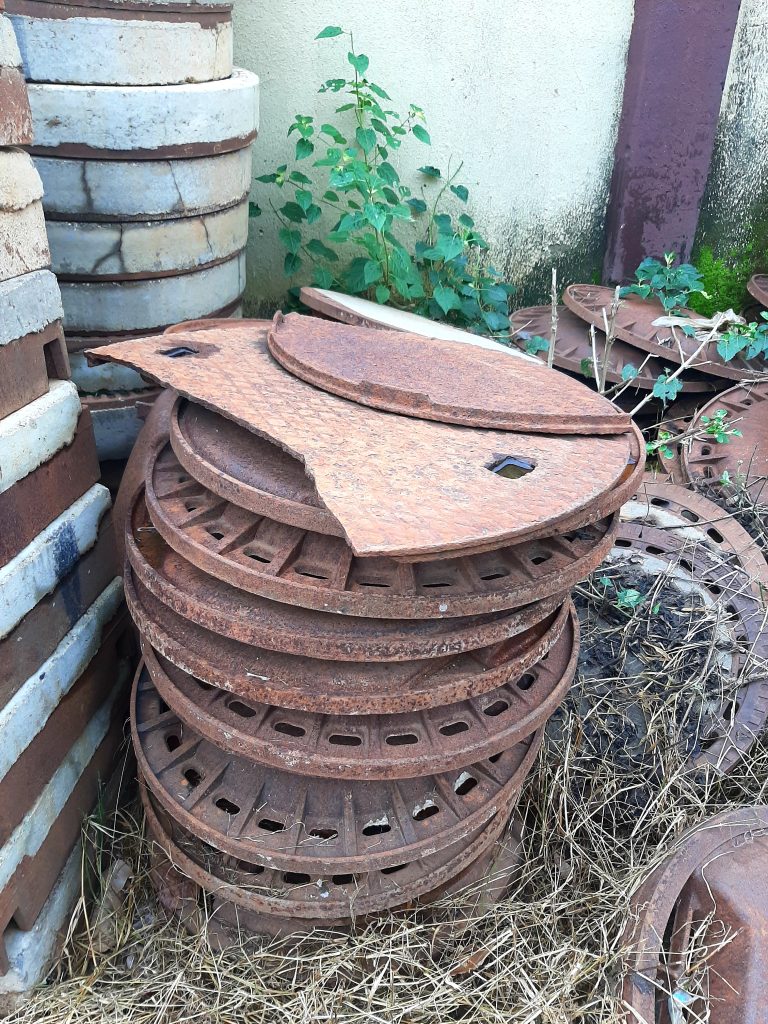
“Telecom operators work on the telecommunication cables that are underground. Sometimes when they finish their work, they do not replace the slab as they met it. Because the slab isn’t something you can use your hands to just pull back, you have to use a crane,” he said.
Advertisement
He said the telecom maintenance teams use cranes to open these covered manholes for maintenance usually spanning weeks and make no efforts to cover them up when their job is done. He lamented that the FMM department of the FCTA has neither supervisory nor enforcement powers to check such negligence and is left with soliciting the help of the development control department to mete sanctions.

Advertisement
“We don’t supervise them, but we intend to write them officially and draw their attention to this negligence and also work with the department of Development Control that has statutory powers to check wrong doings on site to help us enforce the rules but we don’t have enforcement powers as a department,” he said.
“The Development Control has a lot on their hands at the moment, with collapsed buildings, illegal structures and all kinds of issues to deal with.
Advertisement
“The maintenance of the facilities within the city is under my department but the construction of these facilities is under the Federal Capital Development Authority(FCDA) Department of Engineering Services. Some roads take too long before completion, sometimes spanning years. While this happens, the manholes on those roads are left without covers because there has been no handover from the contractors and the department in charge to us.”
Meanwhile, other utility holes initially covered have mostly been reportedly vandalised and their covers, made of cast iron, stolen. Scavengers find the cast iron mould very attractive which when removed, are often sold whole at handsome rates or melted and used for other purposes.
Advertisement
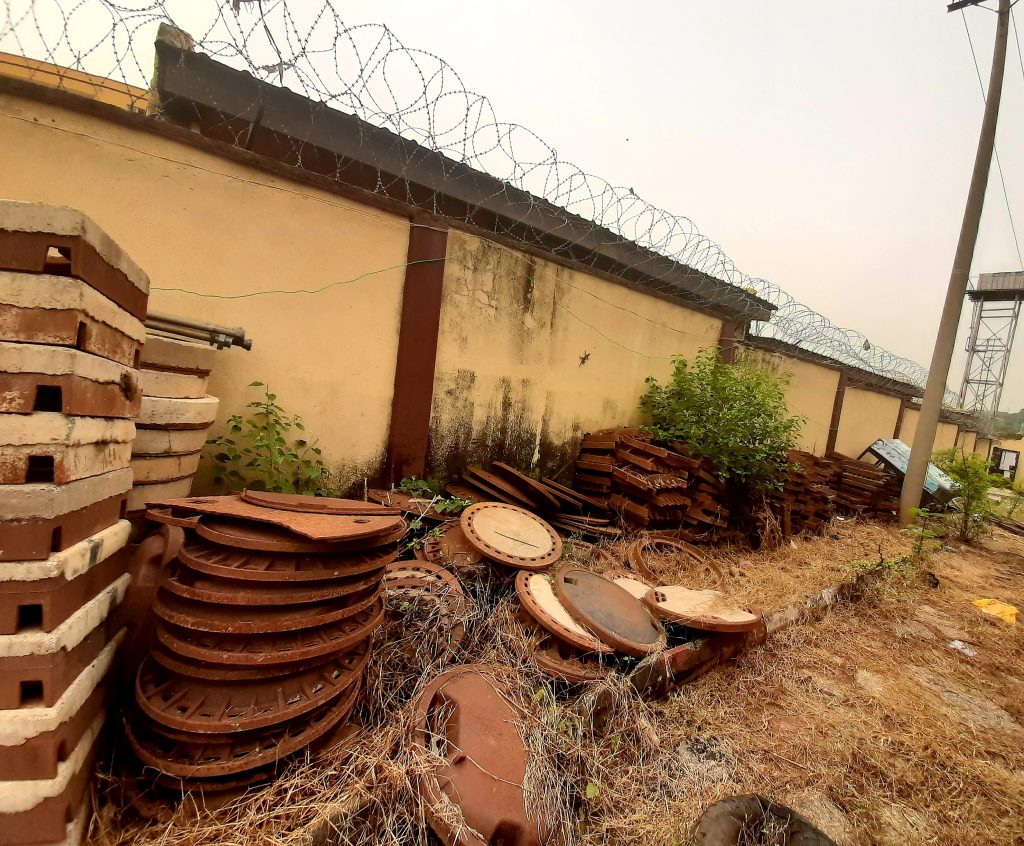
To check such vandalism, the FMM department has relied largely on the Nigeria Security and Civil Defence Corps(NSCDC) who are statutorily mandated to protect critical engineering infrastructure in the country. Currently, hundreds of manhole covers worth over 40 billion naira, recovered from vandals, lie in the custody of the civil defence corps as exhibits in cases pending at the federal high court, for three years running, this according to Akinbinu David, public relations officer, FCT command of the NSCDC.
“The vandals were mostly caught in the middle of the night and early hours, about 4.30 in the morning. You know whenever you arrest a suspect, you investigate and prosecute them. They confessed, we invited the facility management of the FCDA, they came and confirmed that the manholes were from them, I think the manholes are worth about 46 billion naira,” Akinbinu said.
According to him, the manhole covers would remain in their custody until the court gives judgment while the vandals, all of whom he alleges were arrested with their scavenging sacks and large wheel barrows, have been remanded in Kuje Prison pending the determination of the cases.
To prevent firther theft, Olaloye said the FMM department has incorporated invisible locks in existing and new manhole covers that presently make it impossible for unauthorised access.
There are also ongoing plans to change the materials for the manhole covers from cast iron to concrete as well as ductile iron. Ductile iron, unlike the cast iron, crepes and becomes unusable when exposed to the high temperature of a kiln. But a source which pleaded anonymity alleged that the contract to make these alternative manhole casts has been suspended since April 2019, as a result of internal politics involving the Abuja Metropolitan Management Council (AMMC) and FCDA.
According to the source, the AMMC has challenged the durability of the materials used by the FMM saying some of the concrete are breaking and the ductile iron which the FMM allegedly sourced from the Nigerian foundries is not strong enough.
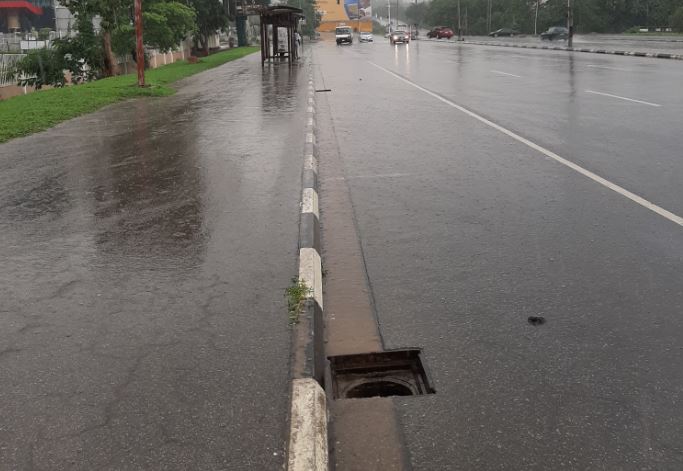
When queried on this, the FMM director confirmed the suspension but said all pending issues have been resolved.
“The report you got has been overtaken by events as all pending issues have been resolved. The Nigerian Foundries have tested our products and presented their test results which confirm that the covers being produced by us conform to relevant technical standards. The contractor has been given approval to complete the outstanding job,” he said.
Giving a time span of 12 to 24 months within which he says all missing manhole covers in the capital city will be replaced, Olaoye said work will commence soon.
The issues have been resolved and approval obtained, perhaps a countdown to the projected 24 months might commence over the next few weeks. But until then, Abuja, which ought to be a model, not just for the country but also global urban planners, might also be tagged “The City of Coverless Manholes”.
Nnadi is a freelance journalist based in Abuja.
Views expressed by contributors are strictly personal and not of TheCable.
Add a comment





